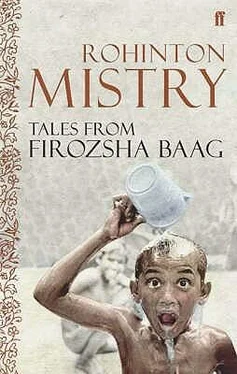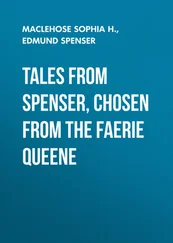Rohinton Mistry - Tales From Firozsha Baag
Здесь есть возможность читать онлайн «Rohinton Mistry - Tales From Firozsha Baag» весь текст электронной книги совершенно бесплатно (целиком полную версию без сокращений). В некоторых случаях можно слушать аудио, скачать через торрент в формате fb2 и присутствует краткое содержание. Год выпуска: 2006, Издательство: Faber & Faber, Жанр: Современная проза, на английском языке. Описание произведения, (предисловие) а так же отзывы посетителей доступны на портале библиотеки ЛибКат.
- Название:Tales From Firozsha Baag
- Автор:
- Издательство:Faber & Faber
- Жанр:
- Год:2006
- ISBN:нет данных
- Рейтинг книги:3 / 5. Голосов: 1
-
Избранное:Добавить в избранное
- Отзывы:
-
Ваша оценка:
- 60
- 1
- 2
- 3
- 4
- 5
Tales From Firozsha Baag: краткое содержание, описание и аннотация
Предлагаем к чтению аннотацию, описание, краткое содержание или предисловие (зависит от того, что написал сам автор книги «Tales From Firozsha Baag»). Если вы не нашли необходимую информацию о книге — напишите в комментариях, мы постараемся отыскать её.
Tales From Firozsha Baag — читать онлайн бесплатно полную книгу (весь текст) целиком
Ниже представлен текст книги, разбитый по страницам. Система сохранения места последней прочитанной страницы, позволяет с удобством читать онлайн бесплатно книгу «Tales From Firozsha Baag», без необходимости каждый раз заново искать на чём Вы остановились. Поставьте закладку, и сможете в любой момент перейти на страницу, на которой закончили чтение.
Интервал:
Закладка:
“The plane began to move again, and suddenly Sarosh felt all the urgency leaving him. His feverish mind, the product of nightmarish days and torturous nights, was filled again with the calm which had fled a decade ago, and he spoke softly now: ‘That … that will not be necessary … it’s okay, I understand.’ He readily returned to his seat.
“As the aircraft sped down the runway, Sarosh’s first reaction was one of joy. The process of adaptation was complete. But later, he could not help wondering if success came before or after the ten-year limit had expired. And since he had already passed through the customs and security check, was he really an immigrant in every sense of the word at the moment of achievement?
“But such questions were merely academic. Or were they? He could not decide. If he returned, what would it be like? Ten years ago, the immigration officer who had stamped his passport had said, ‘Welcome to Canada.’ It was one of Sarosh’s dearest memories, and thinking of it, he fell asleep.
“The plane was flying above the rainclouds. Sunshine streamed into the cabin. A few raindrops were still clinging miraculously to the windows, reminders of what was happening below. They sparkled as the sunlight caught them.”
Some of the boys made as if to leave, thinking the story was finally over. Clearly, they had not found this one as interesting as the others Nariman had told. What dolts, thought Jehangir, they cannot recognize a masterpiece when they hear one. Nariman motioned with his hand for silence.
“But our story does not end there. There was a welcome-home party for Sarosh a few days after he arrived in Bombay. It was not in Firozsha Baag this time because his relatives in the Baag had a serious sickness in the house. But I was invited to it anyway. Sarosh’s family and friends were considerate enough to wait till the jet lag had worked its way out of his system. They wanted him to really enjoy this one.
“Drinks began to flow freely again in his honour: Scotch and soda, rum and Coke, brandy. Sarosh noticed that during his absence all the brand names had changed — the labels were different and unfamiliar. Even for the mixes. Instead of Coke there was Thums-Up, and he remembered reading in the papers about Coca-Cola being kicked out by the Indian Government for refusing to reveal their secret formula.
“People slapped him on the back and shook his hand vigorously, over and over, right through the evening. They said: ‘Telling the truth, you made the right decision, look how happy your mother is to live to see this day;’ or they asked: ‘Well, bossy, what changed your mind?’ Sarosh smiled and nodded his way through it all, passing around Canadian currency at the insistence of some of the curious ones who, egged on by his mother, also pestered him to display his Canadian passport and citizenship card. She had been badgering him since his arrival to tell her the real reason: ‘Saachoo kahé , what brought you back?’ and was hoping that tonight, among his friends, he might raise his glass and reveal something. But she remained disappointed.
“Weeks went by and Sarosh found himself desperately searching for his old place in the pattern of life he had vacated ten years ago. Friends who had organized the welcome-home party gradually disappeared. He went walking in the evenings along Marine Drive, by the sea-wall, where the old crowd used to congregate. But the people who sat on the parapet while waves crashed behind their backs were strangers. The tetrapods were still there, staunchly protecting the reclaimed land from the fury of the sea. He had watched as a kid when cranes had lowered these cement and concrete hulks of respectable grey into the water. They were grimy black now, and from their angularities rose the distinct stench of human excrement. The old pattern was never found by Sarosh; he searched in vain. Patterns of life are selfish and unforgiving.
“Then one day, as I was driving past Marine Drive, I saw someone sitting alone. He looked familiar, so I stopped. For a moment I did not recognize Sarosh, so forlorn and woebegone was his countenance. I parked the apple of my eye and went to him, saying, ‘Hullo, Sid, what are you doing here on your lonesome?’ And he said, ‘No no! No more Sid, please, that name reminds me of all my troubles.’ Then, on the parapet at Marine Drive, he told me his unhappy and wretched tale, with the waves battering away at the tetrapods, and around us the hawkers screaming about coconut-water and sugar-cane juice and paan .
“When he finished, he said that he had related to me the whole sad saga because he knew how I told stories to boys in the Baag, and he wanted me to tell this one, especially to those who were planning to go abroad. ‘Tell them,’ said Sarosh, ‘that the world can be a bewildering place, and dreams and ambitions are often paths to the most pernicious of traps.’ As he spoke, I could see that Sarosh was somewhere far away, perhaps in New Delhi at his immigration interview, seeing himself as he was then, with what he thought was a life of hope and promise stretching endlessly before him. Poor Sarosh. Then he was back beside me on the parapet.
“ ‘I pray you, in your stories,’ said Sarosh, his old sense of humour returning as he deepened his voice for his favourite Othello lines” — and here, Nariman produced a basso profundo of his own — “ ‘When you shall these unlucky deeds relate, speak of me as I am; nothing extenuate, nor set down aught in malice: tell them that in Toronto once there lived a Parsi boy as best as he could. Set you down this; and say, besides, that for some it was good and for some it was bad, but for me life in the land of milk and honey was just a pain in the posterior.’ ”
And now, Nariman allowed his low-pitched rumbles to turn into chuckles. The boys broke into cheers and loud applause and cries of “Encore!” and “More!” Finally, Nariman had to silence them by pointing warningly at Rustomji-the-curmudgeon’s door.
While Kersi and Viraf were joking and wondering what to make of it all, Jehangir edged forward and told Nariman this was the best story he had ever told. Nariman patted his shoulder and smiled. Jehangir left, wondering if Nariman would have been as popular if Dr. Mody was still alive. Probably, since the two were liked for different reasons: Dr. Mody used to be constantly jovial, whereas Nariman had his periodic story-telling urges.
Now the group of boys who had really enjoyed the Savukshaw story during the previous week spoke up. Capitalizing on Nariman’s extraordinarily good mood, they began clamouring for more Savukshaw: “Nariman Uncle, tell the one about Savukshaw the hunter, the one you had started that day.”
“What hunter? I don’t know which one you mean.” He refused to be reminded of it, and got up to leave. But there was loud protest, and the boys started chanting, “We-want-Savukshaw! We-want-Savukshaw!”
Nariman looked fearfully towards Rustomji’s door and held up his hands placatingly: “All right, all right! Next time it will be Savukshaw again. Savukshaw the artist. The story of the Parsi Picasso.”
Lend Me Your Light
… your lights are all lit — then where do you go with your lamp?
My house is all dark and lonesome, — lend me your light.
— Rabindranath Tagore, GitanjaliWe both left Bombay the same year. Jamshed first, for New York, then I, for Toronto. As immigrants in North America, sharing this common experience should have salvaged something from our acquaintanceship. It went back such a long way, to our school days at St. Xavier’s.
To sustain an acquaintance does not take very much. A friendship, that’s another thing. Strange, then, that it has ended so completely, that he has erased himself out of our lives, mine and Percy’s; now I cannot imagine him even as a mere bit player who fills out the action or swells a procession.
Читать дальшеИнтервал:
Закладка:
Похожие книги на «Tales From Firozsha Baag»
Представляем Вашему вниманию похожие книги на «Tales From Firozsha Baag» списком для выбора. Мы отобрали схожую по названию и смыслу литературу в надежде предоставить читателям больше вариантов отыскать новые, интересные, ещё непрочитанные произведения.
Обсуждение, отзывы о книге «Tales From Firozsha Baag» и просто собственные мнения читателей. Оставьте ваши комментарии, напишите, что Вы думаете о произведении, его смысле или главных героях. Укажите что конкретно понравилось, а что нет, и почему Вы так считаете.












